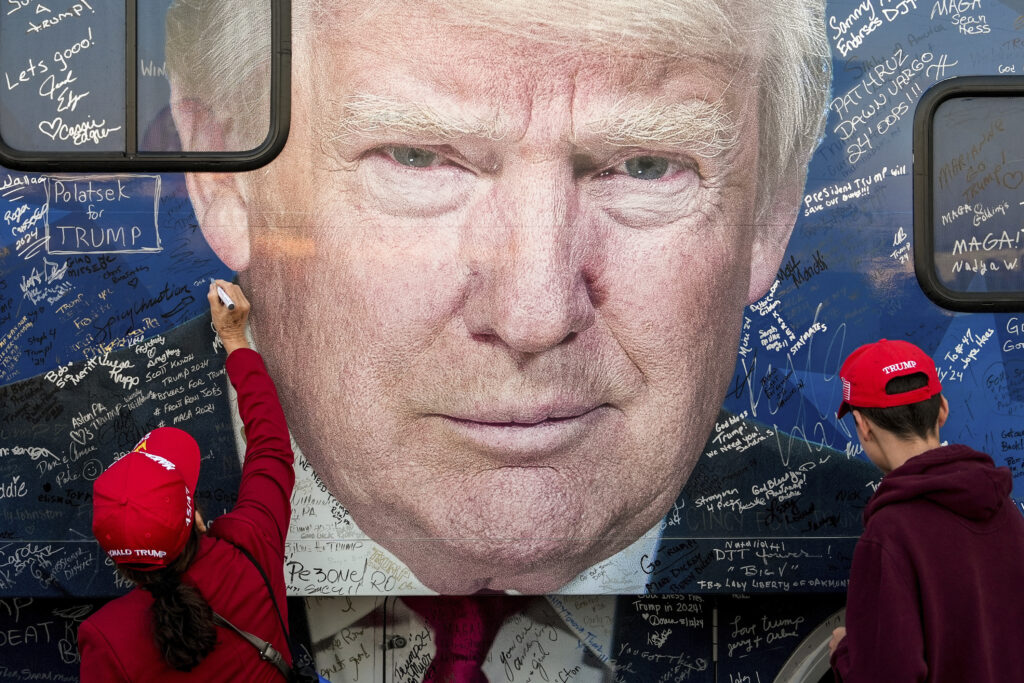President Donald Trump benefited from high voter turnout in the 2024 presidential election more than former Vice President Kamala Harris did, a Pew Research Center survey published Thursday found.
Trump won a larger percentage of voters who cast ballots last November after skipping the 2020 election, and the poll found roughly equal support between Trump and Harris among eligible voters who stayed home in 2024.
That finding bucks a trend in the presidential electorate dating back decades. Historical analysis of presidential elections has indicated Democrats generally have been more popular among nonvoters. In 2020, nonvoters preferred former President Joe Biden over Trump by 11 points.
The survey suggests that “if all Americans eligible to vote in 2024 had cast ballots, the overall margin in the popular vote likely would not have been much different,” the authors wrote.
Trump won 52 percent of 2024 voters who either stayed home in 2020 or weren’t eligible to vote, compared to 45 percent for Harris. That marks an increase for Trump, who lost voters in 2020 who skipped the 2016 election by eight points.
The analysis from Pew — its “validated voters” survey, which matches survey respondents to commercially available voter files to make sure respondents who said they voted actually did vote — has been conducted for every federal election since 2016 and is considered a gold standard piece of election data.
Sixty-four percent of the electorate voted in the 2024 election, the second-highest figure since 1960, trailing only the 2020 election.
The Trump campaign aggressively targeted voters who had skipped previous elections, focusing specifically on young men. Trump won 55 percent of voters who skipped both the 2020 presidential election and the 2022 midterms, compared to 41 percent who backed Harris. The survey found that 12 percent of the 2024 electorate was made up of voters who skipped the previous midterm and presidential election.
The survey found that 44 percent of nonvoters said they would have voted for Trump had they voted, while 40 percent said they would have supported Harris.
The finding complicates the initial picture of the electorate in the days after last November’s election, when Democrats scrambled to explain how traditionally blue areas of the country shifted towards Trump. Some Democrats argued that the progressive movement to withhold support for Harris over the Biden administration’s handling of the Israel-Hamas war suppressed turnout among traditionally Democratic voters.
The survey also found Trump’s coalition of voters in 2024 to be more racially diverse than the voters who backed him in the 2020 and 2016 elections. Trump won 48 percent support from Hispanic voters in 2024, roughly equal to the 51 percent support Harris received. Trump also won 15 percent of Black voters, a seven-point increase from 2020.
Among voters who immigrated to the U.S. and became naturalized citizens, Trump received 47 percent of the vote, splitting the group about evenly with Harris, who received 51 percent support.
The Pew Research Center surveyed 8,942 U.S. citizens ages 18 and older who are members of the Center’s American Trends Panel and verified their turnout using commercial voter files that collect public state turnout records. The survey ran Nov. 12-17, 2024, and has a sampling error of plus-or-minus 1.4 percentage points for the entire survey.
Read the full article here
